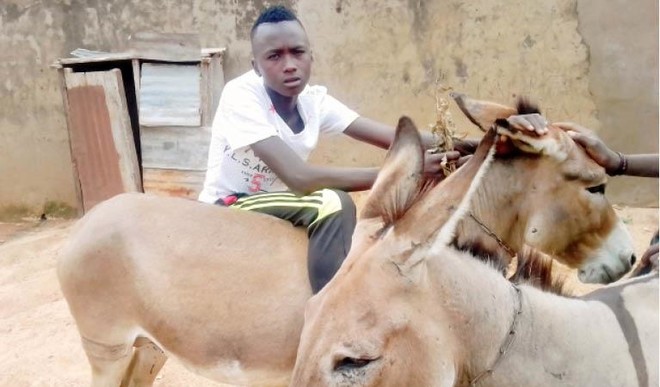Reps seek to prohibit killing, export of donkeys
A bill to prohibit the killing and export of donkeys or its derivatives, was on Tuesday read for the first time at the House of Representatives. The “Bill to enact the donkey export and killing (prohibition) bill, 2018” was sponsored by Garba Datti Muhammed (APC, Kaduna). In a lead debate, Muhammed said the main thrust […]

A bill to prohibit the killing and export of donkeys or its derivatives, was on Tuesday read for the first time at the House of Representatives.
The “Bill to enact the donkey export and killing (prohibition) bill, 2018” was sponsored by Garba Datti Muhammed (APC, Kaduna).
In a lead debate, Muhammed said the main thrust of the bill was to preserve the endangered donkey species from extinction.
“This bill seeks, among others, to prohibit the killing of donkeys in Nigeria and the exportation of its derivatives, especially the skin, out of Nigeria, given the depletion in their population and the threat of extinction.
“Donkey has aesthetic, ecological, educational, historical, recreational and scientific value to Nigerians, and thus need to be preserved exclusively for use in rural transportation,” he informed the House.
The lawmaker warned of severe depopulation of donkey in the country as a result of the recent invasion of West African markets by Chinese traders in search of donkey skins.
He said the demand for donkey skin is extremely high because a ‘gelatin’ derived from it is prized for its nutritional tonic, blood boosting and immune system enhancement.
He further noted that by enacting a law in that regard, Nigeria would have followed the examples of Mali, Senegal, Botswana, Burkina Faso, Ethiopia and Zimbabwe, which have taken measures to protect the animal.
The lawmaker decried that in Kano, for instance, a donkey that was normally sold for between N15,000 and N18,000 now goes for between N70,000 and N75,000, while Chinese dealers posted profits of about U$295 million in 2016.
According to him, failure to restrict the consumption and export of the animal meant that Nigerians would be denied of the derivable commercial, research and recreational benefits.
The bill, which proposes two clauses against the intentional killing and/or exportation of donkey in Nigeria, also recommends a penalty of 10 years imprisonment for offenders.
